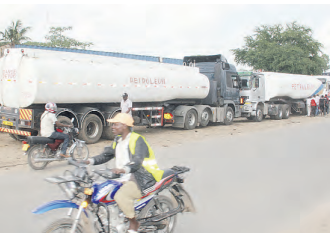
The Petroleum Institute of East Africa is pushing for the removal of any new levies outside licensing requirements or those imposed on petroleum.
The petroleum sector lobby group argues that a lack of harmonisation between county and national regulations has led to conflicting requirements, leaving businesses struggling to navigate the system.
In submissions to the Senate Committee on Transport, PIEA said that currently, dealers are required to secure multiple licenses and permits, with fees differing from one county to another.
Additionally, it noted that agencies such as the Kenya National Highways Authority impose separate levies, further complicating compliance.
PIEA General Manager, Wanjiku Manyara, said the fragmented and unpredictable regulatory framework, marked by varying licensing requirements and fees by national and county governments, is stifling the sector’s growth.
“The petroleum industry is required to obtain multiple licenses and permits from the county and national governments and has experienced adverse challenges with the ad hoc revisions in the levying of county licensing fees, taxes, and cess,” said Manyara.
The challenges have not only increased the cost of doing business but have also imposed a heavy administrative burden on industry stakeholders.
The situation has hindered growth, particularly at the county level, as petroleum firms contend with rising operational expenses and regulatory uncertainty.
“There has been an almost threefold increase in Mombasa County licensing fees for petrol station businesses from Sh122,100 in 2023 to Sh340,050 in 2024,” said Manyara.
“The new licensing fees have different rates for signage for the station, with the entry and exit boards having a separate rate, canopy branding having another rate, all totaling Sh340,050.”
In Nairobi, the compliance license
previously issued by the Ministry of
Lands at Sh2,000 per annum has
been moved to Nairobi County and
increased to Sh50,000 per annum.
















